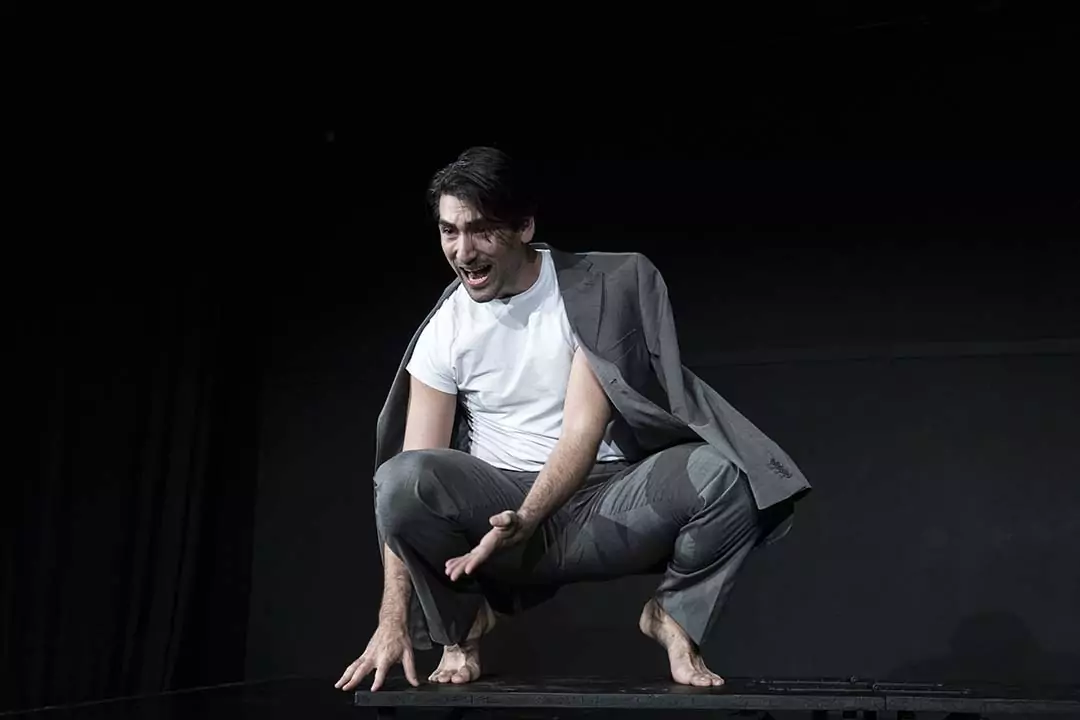

Nell’occhio del labirinto
16 January| Ora 20:30
| €16,00Apology of Enzo Tortora
Nearby Corso Magenta in Milan, right in front of Teatro Litta, is Largo Enzo Tortora. Almost more of a commemoration than a toponymic plaque – I don’t think it even possesses a house number – in small print, under the name, it bears the words “journalist” and the dates of birth and death: 1928-1988.
More out of curiosity than civic sense, one day, I decided to inquire. I discovered that the “Tortora case” was well known to my mother’s generation and absolutely unknown to mine. A case of maljustice, perhaps even more egregious because it was perpetrated against a person known to Italians, since his face held court for an hour and a half a week on the national networks. It was an episode that took on increasingly chilling contours as I delved deeper into it: no presumption of innocence, accusations made without any proof, magistrates eager to arrest the “big name” who do not read trial records, anti-Mafia raids sold to the press even before they take place, all against a man totally unconnected to the facts and not associated in any way with Camorra circles.
We often feel that the 21st century is the era of fake news, of the overwhelming power of the media-whether traditional or social-in directing public opinion to one side or the other. The Tortora case is a prime example of how the manipulation of information has its roots further back in time: influential newspapers and respected signatures have contributed to this grotesque mud machine based on “judicial gossip,” streams of slander hinging on “hearsay,” big hunts for the most vicious scoop to paint an honest person as a monster with a double face, that of the presenter who entertains families on state TV and that of the gangster capable of moving millions of lire and kilos of cocaine with a snap of his fingers. The Tortora case is unbelievable not only because of the cruelty with which judges, the press and public opinion have turned on an innocent man. Enzo’s story is the story of a man who, from the height of his position as a public figure, decided to be a spokesman for a battle that has no political color: that of just justice. He could have gone into hiding as others – less innocent – before him had already done, he could have escaped a trial he knew was unfair. Aware that he was innocent, Tortora stripped himself of his immunity as an MEP to be tried by a tribunal that saw him not as a defendant but as an enemy. Aware that he was innocent, he made his story available to all the people who are in the same situation as him but do not have the means and opportunities to be judged fairly. The monologue – played by Simone Tudda – unfolds in a continuous narrative where the diegesis crosses narrative boundaries to flow into dialogue, goes back into historical account, where the data are always told in a manner essential to understanding the events, alternates between the third person of an omniscient narrator who goes to spy on the inmates of the prison of Forte Longone and the first person of the journalist, until he delves into his interiority at the moment of his arrest, trying to imagine how he might have felt, hunted down in the middle of the night by carabinieri at the Plaza Hotel in Rome.
Thus began his years in the eye of the labyrinth, an expression meant to combine the claustrophobia of those who do not know when, and especially if, they will be able to get out of their physical and mental imprisonment with the vigilante voyeurism of the press, which, for the sake of one more copy sold, did not hesitate to ignore the facts to make way for the most vicious sensationalism.
Chicco Dossi
Playbill
written and directed by Chicco Dossi
with Simone Tudda
first viewer Renato Sarti
production Cooperative Theater
we thank The Enzo Tortora Association
Duration 1 hour and 10 minutes without intermission



